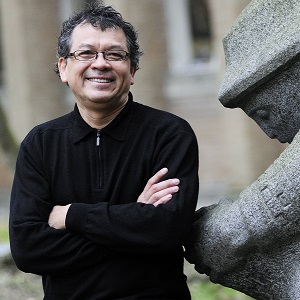Milestones and News & Notes
Awards and Grants

Dana-Lyn Mackenzie won a UBC President’s Staff Award in the category Advancing Anti-Racism and Inclusive Excellence. She has a shared position with LFS, Applied Science and Forestry as Senior Manager, EDI and Indigeneity, and has been a co-lead on the Orange Shirt Day march at UBC for several years.
Dr. Risa Sargent leads a multi-institution research project that received $6.5 million from the NSERC-SSHRC Sustainable Agriculture Research Initiative. This project will explore the wide range of benefits of perennial plantings in agricultural settings—from acting as important carbon sinks to providing ecological and socio-economic
benefits. UBC will partner with seven non-profit and governmental organizations, and with researchers across four Canadian universities.


Sabrina Yan celebrated her 40th work anniversary with UBC this fall. Sabrina has been with the LFS Development team since 2012, but has served at the university in various roles since 1984, including with the Institute of Asian Research and the International Liaison Office.
Catalyzing Research Clusters
Three LFS projects received a 2024-25 UBC Grant for Catalyzing Research Clusters, funding that brings together researchers from varied disciplines to address societal and cultural problems: Dr. Anubhav Pratap-Singh is leading the FuturePack Innovations Cluster that will look at new packaging materials; Dr. Eduardo Jovel leads a cluster titled the Indigenous Land-Based Health, Wellness, and Education Research Cluster; and, Drs. Simone Castellarin and Vivien Measday received funding for another year for Wine Production and Climate Change.




Organic Science Cluster



LFS researchers are involved in Organic Science Cluster 4. Organic Science Clusters are funded through Agriculture and Agri-Food Canada’s AgriScience Program, with matching funding from industry gathered by the Organic Federation of Canada (OFC). One project led by Dr. Sean Smukler will investigate how the adoption of organic farming practices has the potential to help mitigate climate change. Another project led by Dr. Juli Carrillo with Zoology’s Dr. Claire Kremen will research how natural biological processes and ecosystem services can reduce the need for commercial inputs with an initial focus on perennial berry production.
News and Notes
Taking Research to The Molecular Level

The Analytical Core Facility (ACF) is a fee-for-service lab open to those working in industry and academia. The ACF has liquid and gas chromatography instruments to analyze a wide range of small molecules using detectors such as mass spectrometers and UV detectors. These provide both quantitative and qualitative data to help companies develop new products, support academic research, and provide hands-on training to student researchers. In the past year, the ACF has worked on many projects,
including:
- Quantifying sugars, acids, and phenolics in heat-stressed grapes to help understand adaptations to climate change and possible treatments
- Researching the biochemical diversity of the western red cedar to understand stress/climate change adaptations
- Identifying important flavour compounds in creating plant-based meat products
- Examining artifacts from the Museum of Anthropology at UBC to test for environmental contaminants
- Working on clean technology product development
If you are interested in working with the Analytical Core Facility, contact Eerik Piirtola at: eerik.piirtola@ubc.ca.
Dairy Centre Academic Director

Dr. Marina (Nina) von Keyserlingk, Professor of Animal Welfare, was appointed the Academic Director of the UBC Dairy Education and Research Centre in Agassiz, B.C., in September 2023. She is the third Academic Director in the Centre’s history, following in the footsteps of Drs. Ronaldo Cerri (2019-2023) and James Thompson (1997-2019). The Dairy Centre is located on the grounds of the Agriculture and Agri-Food Experimental Station in Agassiz. This research facility houses a milking herd of approximately 245 lactating cattle, 40 dry cows, and related calves and heifers.
UBC Dairy Goes High Tech
The UBC Dairy Education and Research Centre is now one of North America’s largest
research facilities using automated milkers. This technology supports new data streams—such as when cows are milked, how many times they enter the milking unit, the duration of each each milking visit, and the volume of milk produced by each individual cow. The six automated milking systems (plus one training unit) capture all of the daily milk from the farm’s lactating cows.
